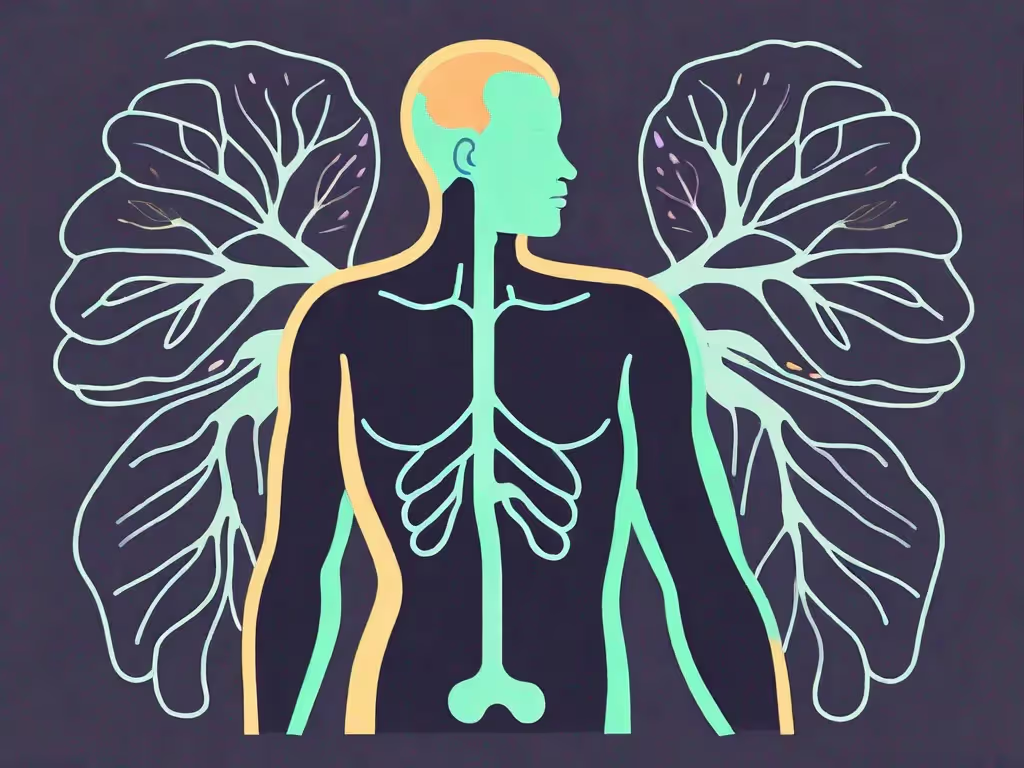Have you ever taken a moment to think about how you breathe? Breathing is something we do without much thought, yet it plays a critical role in our overall well-being. Shallow breathing is a common habit that many of us have developed, sometimes without even realizing it. But what exactly is shallow breathing, and how does it impact our bodies? In this article, we will explore the effects of shallow breathing on our physical and mental health, and the importance of deep breathing as an antidote to this habit.
Understanding Shallow Breathing
Shallow breathing, also known as chest or thoracic breathing, is a pattern of breathing where the breaths are short and primarily involve the chest muscles. Unlike deep breathing, which engages the diaphragm and fills the lungs fully, shallow breathing tends to be shallow and limited in its depth. This kind of breathing can become a habit, brought on by stress, anxiety, or even poor posture.
Definition and Causes of Shallow Breathing
Shallow breathing is characterized by breathing primarily into the chest, rather than using the full capacity of the lungs. This can lead to a variety of negative effects on our bodies and overall well-being.
There are several causes of shallow breathing. One common cause is chronic stress. When we are stressed, our body goes into fight-or-flight mode, and shallow breathing is part of this primal response. Additionally, poor posture can contribute to shallow breathing, as slouching compresses the chest and limits lung expansion. Other factors such as anxiety, respiratory conditions, and muscle tension can also lead to shallow breathing.
The Physiology of Shallow Breathing
Shallow breathing disrupts the natural rhythm of our breath and affects the way oxygen is delivered to our cells. When we breathe shallowly, we are not able to fully exhale carbon dioxide, which can lead to an accumulation of this waste gas in our bodies. This imbalance can cause a range of physiological effects, including:
- Increased heart rate and blood pressure: Shallow breathing triggers the sympathetic nervous system, which prepares the body for action. This can result in a faster heart rate and higher blood pressure, putting additional stress on the cardiovascular system.
- Poor digestion: Shallow breathing restricts the diaphragm's movement, which can reduce blood flow to the digestive organs and interfere with optimal digestion.
- Tension in muscles: Shallow breathing often involves the use of accessory muscles in the neck, shoulders, and chest. Over time, this can lead to muscle tension and discomfort.
- Reduced oxygen supply: Shallow breathing limits the amount of oxygen reaching our cells, leading to fatigue and decreased mental clarity.
- Increased susceptibility to respiratory infections: By not fully engaging the diaphragm, shallow breathing can impair the proper functioning of the respiratory system, making us more prone to infections and respiratory illnesses.
Despite these negative consequences, shallow breathing is a habit that can be broken. Cultivating deep breathing practices can help restore balance to our bodies and promote overall well-being.
The Connection Between Shallow Breathing and Stress
Stress is an unavoidable part of life, but the way we handle it can greatly impact our health. Shallow breathing and stress often go hand in hand, creating a vicious cycle that can be challenging to break. To understand this connection, let's explore how shallow breathing manifests as a stress response and how chronic stress can perpetuate shallow breathing.
Shallow Breathing as a Stress Response
When faced with a stressful situation, our bodies naturally respond by activating the sympathetic nervous system. This response is commonly known as the fight-or-flight response, and shallow breathing is one of the physical manifestations of this survival mechanism.
During times of stress, shallow breathing helps us take in quick bursts of oxygen, allowing us to be alert and ready to respond to potential threats. While this response can be helpful in short-term, acute stress situations, it becomes problematic when it becomes a chronic, ongoing pattern.
Chronic Stress and Persistent Shallow Breathing
Chronic stress can lead to persistent shallow breathing, even when we're not facing immediate threats. The constant activation of the stress response can disrupt the natural rhythm of our breath, becoming a habit that is difficult to break.
Additionally, chronic stress often results in muscle tension, which can further contribute to shallow breathing. When we are stressed, our muscles tend to contract and tighten, affecting our breathing patterns. Over time, these tense muscles can become habitual and prevent us from breathing deeply and fully.
Despite that, there is a ray of hope. By incorporating deep breathing exercises and relaxation techniques, we can interrupt the cycle of stress and shallow breathing, giving our bodies the space to relax and heal.
Health Consequences of Shallow Breathing
The negative impact of shallow breathing extends beyond our stress levels. Our entire body can be affected by this habit, with specific implications for our cardiovascular system, digestive system, and overall nervous system health.
Impact on the Cardiovascular System
Shallow breathing can have a direct impact on the health of our cardiovascular system. The increase in heart rate and blood pressure that accompanies shallow breathing can strain the heart and blood vessels over time. This strain can contribute to the development of hypertension and cardiovascular diseases.
On the other hand, incorporating deep breathing practices into our daily lives can help counteract these negative effects. Deep breathing activates the parasympathetic nervous system, promoting relaxation and reducing the strain on our cardiovascular system.
Effects on the Digestive System
Our digestive system is closely connected to our breathing patterns. Shallow breathing can disrupt the normal functioning of this vital system, leading to a range of digestive issues.
When we breathe shallowly, the diaphragm, a muscle responsible for proper digestion, is not fully engaged. This can result in reduced blood flow to the digestive organs and impaired nutrient absorption. It can also interfere with the rhythmic contractions of the digestive tract, leading to issues such as bloating, constipation, and acid reflux.
However, by practicing deep breathing techniques, we can activate the diaphragm and increase blood flow to the digestive system, enhancing its functioning and promoting optimal digestion and absorption of nutrients.
Shallow Breathing and the Nervous System
Our nervous system plays a crucial role in maintaining balance and harmony within our bodies. Shallow breathing can disrupt this delicate balance, affecting our overall quality of life.
When we breathe shallowly, our body perceives this as a sign of danger or stress. As a result, the sympathetic nervous system, responsible for the fight-or-flight response, is continuously activated. This constant state of arousal can lead to increased anxiety, sleep disturbances, and difficulty regulating emotions.
On the flip side, deep breathing activates the parasympathetic nervous system, helping to counteract the effects of stress and promote a sense of calm and relaxation. By fostering a regular deep breathing practice, we can create a more harmonious balance within our nervous system and enhance our overall well-being.
Shallow Breathing and Mental Health
It's no secret that our physical and mental health are closely interconnected. Shallow breathing can have significant implications for our mental well-being, contributing to anxiety, panic attacks, and other mental health challenges.
Anxiety and Shallow Breathing
Anxiety and shallow breathing often go hand in hand. When we are anxious, our breathing tends to become quick and shallow. This can create a feedback loop, where shallow breathing reinforces anxiety symptoms, and anxiety, in turn, perpetuates shallow breathing.
Despite that, deep breathing exercises can be a powerful tool in managing anxiety. By consciously slowing down our breath and filling our lungs deeply, we signal to our brain that we are safe and in control. This can help calm the body and mind and reduce anxiety symptoms.
Shallow Breathing and Its Role in Panic Attacks
Panic attacks are intense episodes of fear and anxiety that can be triggered by various factors, including shallow breathing. During a panic attack, our breathing may become rapid and shallow, further exacerbating the feelings of fear and distress.
By incorporating deep breathing techniques into our daily routine, we can build resilience and equip ourselves with valuable coping mechanisms to manage and prevent panic attacks. Deep breathing helps regulate the flow of oxygen and calms the body, allowing us to regain control and ease the intensity of panic attack symptoms.
The Importance of Deep Breathing
Now that we understand the impact of shallow breathing on our bodies and mental well-being, let's explore the importance of deep breathing as a remedy.
Benefits of Deep Breathing for the Body
Deep breathing offers numerous benefits for our physical health. When we breathe deeply, we engage the diaphragm and increase oxygen intake, improving overall lung function and oxygen exchange in our bodies. Deep breathing also:
- Reduces muscle tension and promotes relaxation
- Supports proper digestion and nutrient absorption
- Boosts the immune system and enhances respiratory health
- Regulates heart rate and blood pressure
By incorporating deep breathing exercises into our daily routine, we can optimize our body's functioning and cultivate a sense of vitality and well-being.
Deep Breathing and Its Impact on Mental Well-being
In addition to its physical benefits, deep breathing has a profound impact on our mental well-being. The intentional act of deep breathing shifts our focus away from racing thoughts and promotes a state of mindfulness and presence.
Deep breathing triggers the relaxation response, which counteracts the stress response and promotes a sense of calmness and inner peace. By regularly practicing deep breathing, we can manage stress more effectively, alleviate anxiety and depression symptoms, and enhance our overall mental well-being.
Despite these numerous benefits, incorporating deep breathing into our daily lives can be challenging. That's where the Aura Health App comes in. This simple yet powerful app offers guided deep breathing exercises, meditation, and mindfulness practices to help you cultivate deep breathing as a daily habit. With the Aura Health App, you can take control of your breath and unlock the transformative power of deep breathing for your body and mind.
Aura is Your All In One App for Meditation, Mindfulness Wellbeing
Find peace every day with one app for your whole well-being. There is no one-size-fits-all solution to mental well-being. Aura is the first all-in-one wellness app that learns how to best help you. Discover an endless library of expert-created tracks for your well-being, all taught by the world’s best coaches, therapists, and storytellers. With Aura's personalized recommendations, you can find peace every morning, day and night.



.webp)






.avif)

%20(1).avif)


.avif)
.avif)
.webp)


.avif)


















































































































.avif)

















.svg)









